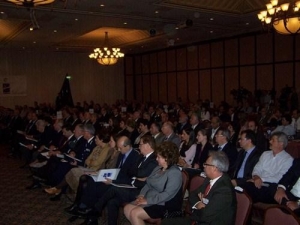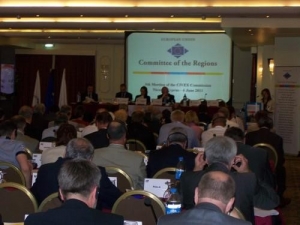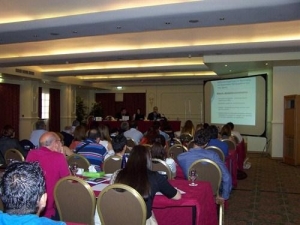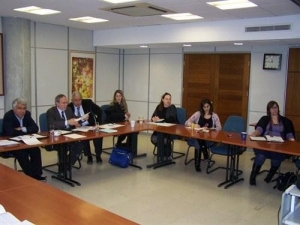EUROPEAN PROJECT SUSTAIN: SUSTAINABLE TRAINING ACTIVITIES ON TWINNING – 28/01/2011
Following a proposal submitted by the Union of Cyprus Municipalities within the European Programme “Europe for Citizens”, the European Commission decided to finance the cooperation between the Union of Cyprus Municipalities (UCM) and the Local Union of Municipalities and Communities of the Prefecture of Chios (TEDK Chios) from Greece, in order to develop twinning links of municipalities-members of the two Associations with municipalities from other EU countries.
The UCM and TEDK Chios have started their cooperation a few years ago thanks to a twinning link between the Municipality of Chios and the Municipality of Kyrenia. In 2009 the cooperation was formalized with the signing of a memorandum of cooperation. In 2010, the two associations cooperated within the framework of the European Project DECISIVE, a project aiming to train volunteers and municipal personnel on Twinning issues.
During the cooperation of the two associations in the framework of the DECISIVE project, the following facts have become evident: TEDK Chios has a remarkable knowhow on running EU projects and supporting its members in managing their own projects, but lacks access to Europe-wide networks and information flows.
On the other hand, the Union of Cyprus Municipalities, through its Brussels Office, has created a vast network of partners able to provide access to information and Municipalities-partners all around Europe, but does not have a mechanism to support its members in submitting project proposals and running the actual projects.
The SUSTAIN project aims to combine the comparative advantages of the two partners, thus creating beneficial synergies for their members.
The project will also seek to gather into a comprehensive guide all information material (guides, websites, bibliography, best practices…) on twinning, in order to provide practical answers to local actors and citizens seeking to work on Town Twinning.
Finally, the project will enable Twinning stakeholders from both partners, not only to learn from each other’s experiences, but to physically work within each other’s premises, in order to better understand each other’s processes.
A common study visit to Brussels will also give them the opportunity to get acquainted with the Executive Agency Education, Audiovisual and Culture (EACEA) and understand the logic of Town Twinning and of the people working on it.




